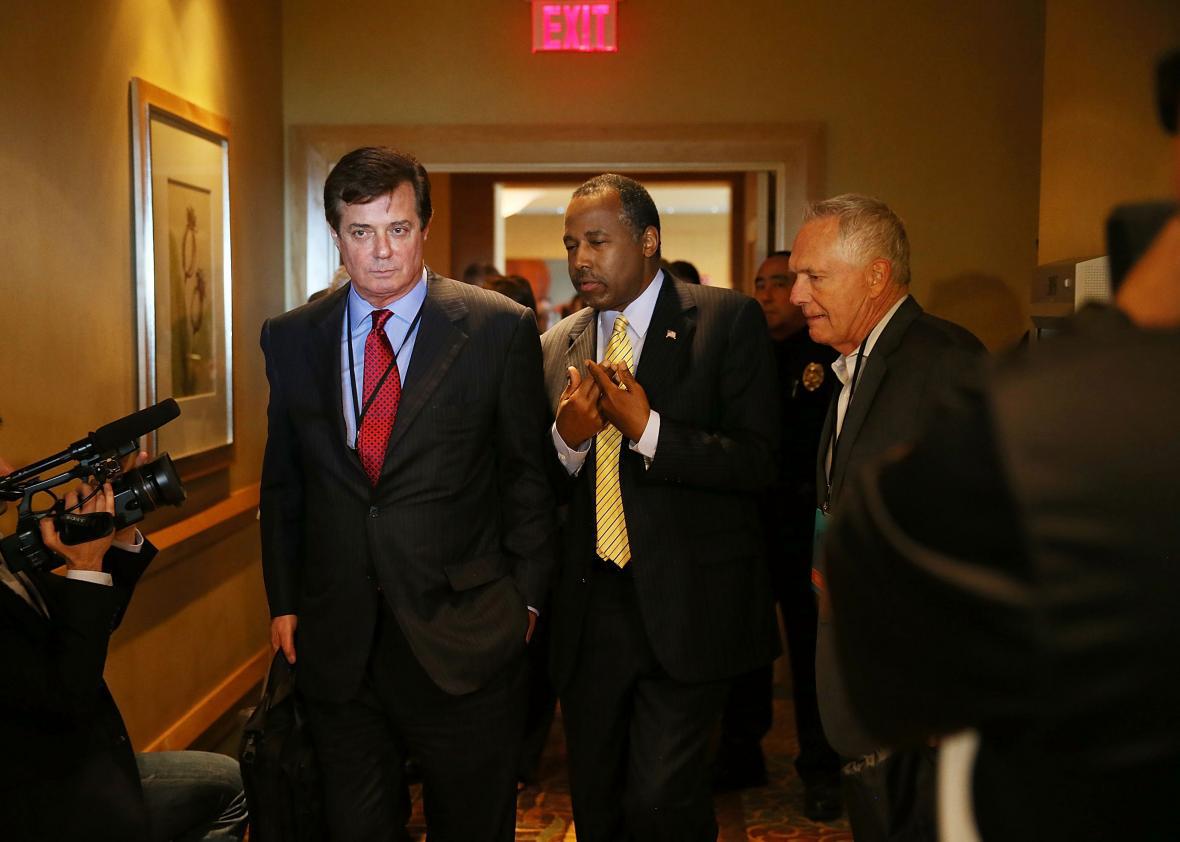There’s trouble in Trump Tower. Or at least that’s the intended takeaway from a new Politico report, which suggests that Donald Trump’s new chief strategist, Paul Manafort, is already falling out of favor with his boss less than two weeks on the job. The GOP front-runner, according to the report, is “bristling” at Manafort’s attempt to reshape the campaign in a more conventional mold, and has “expressed misgivings” about the veteran political operative “for overstepping his bounds” in his bid to do so.
The specific complaints mentioned in the report are many: Manafort’s effort last week to assure GOP officials that Trump’s only been “projecting an image” to appeal to primary voters; Manafort’s decision to bring in several highly questionable former lobbyists to work with the campaign; that Manafort has been making so many television appearance at the same time he has urged his candidate to make so few; and that Manafort wants Trump to spend millions on paid ads at the same time he’s telling him to pass up free media. So, yeah, not exactly a glowing performance review!
Still, it’s difficult to know exactly how much stock to put in the criticism. The report relies almost exclusively on unnamed “sources close to the campaign” and—with the notable exception of a single source described as “a Manafort ally”—the quotes are clearly coming from the Let Trump Be Trump school of thought championed by Corey Lewandowski, the billionaire’s (literally) combative campaign manager who saw his own role reduced after Manafort joined the team this month. (Here’s a snippet from one unnamed operative: “These consultants are used to being smarter than their candidate and in this scenario, the candidate is smarter and willing to risk more than you are.”)
The national press corps loves a good “campaign in disarray” story, and much has already been made of Trump’s decision to empower Manafort to big-foot Lewandowski this late in the game. But there is also the possibility that the candidate wants both messages out there. Trump’s a real estate tycoon with an Ivy League degree who offers himself as an anti-establishment outsider. His chief argument for why he can clean up Washington is that he has benefited so much by it being dirty. He sells himself as the consummate conservative in one breath and flaunts conservative orthodoxy in the next. This type of political duplicity isn’t a bug in Trump’s campaign, it’s a feature.
As I touched on last week, the Theory of Two Trumps has long been at the center of the Donald’s political brand. Before Manafort was caught on tape last week, Ben Carson had made pretty much the same exact argument while endorsing his former rival last month. “There’s the one you see on the stage and there’s the one who’s very cerebral, sits there, and considers things very carefully,” said Carson, a man Trump once compared to a child molester. Fittingly, Trump tried to have it both ways moments later, agreeing and then quickly disagreeing with his new surrogate’s assessment. But the GOP front-runner also nods to the idea every time he hypes himself as a modern day P.T. Barnum, suggests that he would “act differently” in the White House, or touts his ongoing political “evolution” as a selling point.
I won’t pretend to know if careening back and forth between promising to stay the course and promising to change is an intentional decision by Trump, or just the result of him saying whatever he feels like in that particular moment. As far as the GOP primary is concerned, though, there’s no evidence that it’s hurting him.
